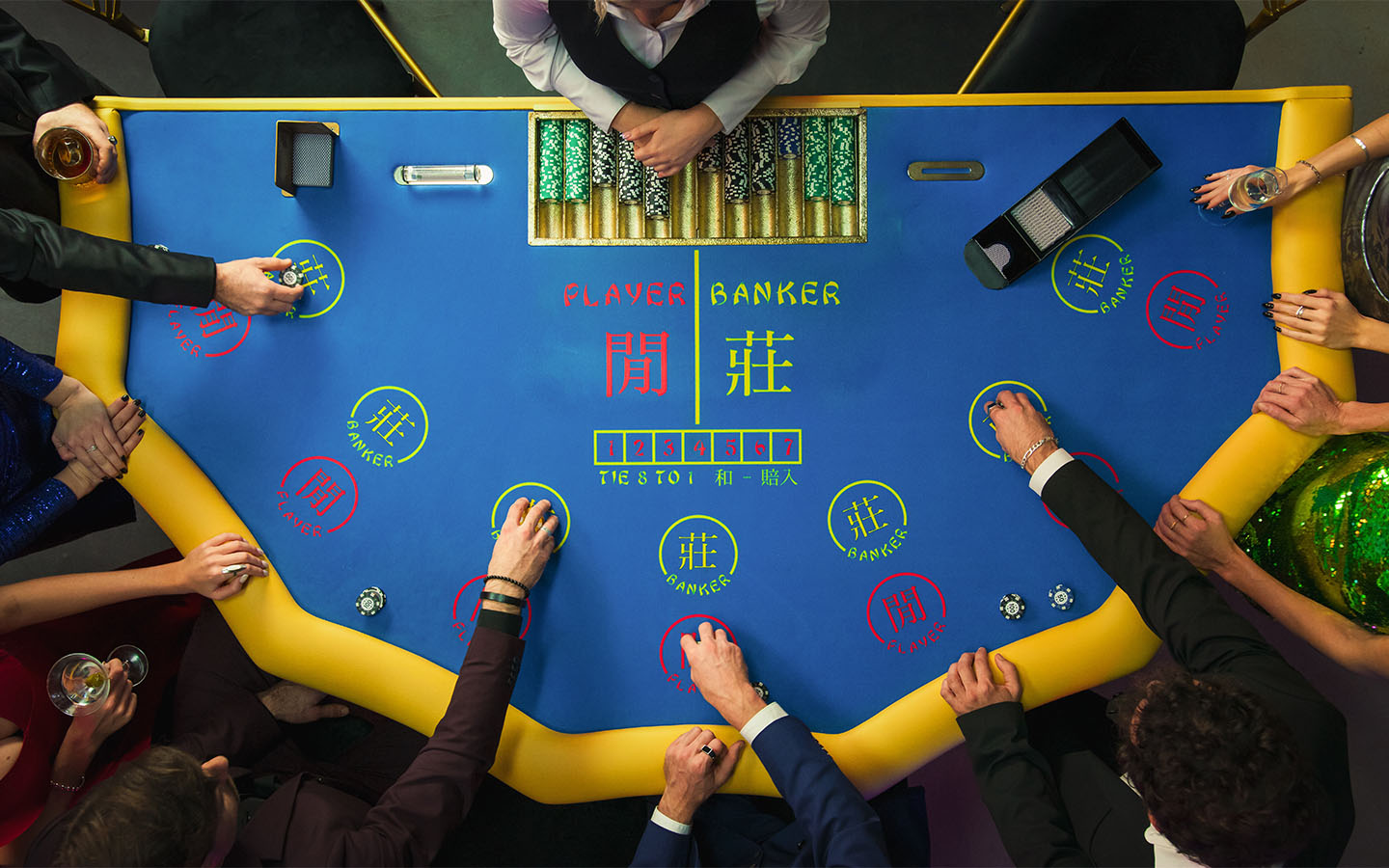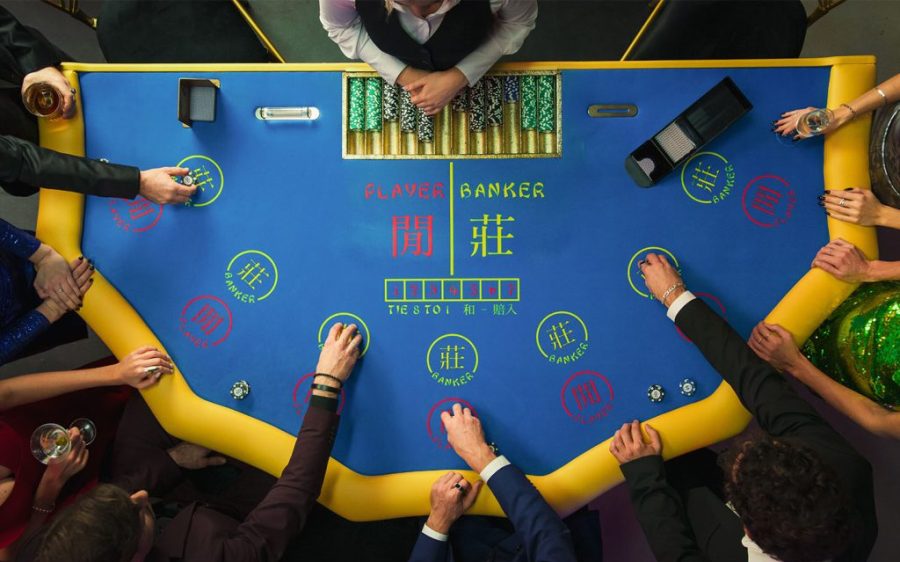Step into any Macao casino, and you’ll find crowds huddling around the baccarat table, placing and testing their collective luck.
The game with the French name is wildly popular here. Last year, Macao generated more than 155.68 billion patacas (US$ 19.3 billion) in revenue from baccarat and VIP baccarat, according to the Gaming Inspection and Coordination Bureau (which goes by its Portuguese initials DICJ). That was nearly 84 percent of the total revenue Macao made from all gaming activities.
[See more: The biggest better over the Labour Day holiday was a South Korean]
In other words, Macao is baccarat. Despite that, the game is associated more with James Bond and Monaco’s Monte Carlo Casino than the bustling Cotai Strip. It can also be something of a mystery for outsiders.
Before you place your bets, here’s what you need to know about the classic card game in Macao.
What is baccarat, and how do you play it?
In its simplest form, baccarat is a contest between two hands – known as the “banker’s hand” and the “player’s hand.” (Note that “banker” and “player” don’t refer to any specific person, they’re just what the hands are called.)
The winning hand is the one that comes as close to nine as possible without going over it. As the punter, you’re betting on whether the banker’s hand or the player’s hand will win, or if they’ll tie.
[See more: Nearly 22 billion patacas were collected in gaming taxes in the first quarter]
Rounds of play are called “coups” and the dealer is a “croupier.” To start the game, you place your bet. The croupier deals one card face down for the player’s hand, then one for the banker’s, and then one more each for player and banker.
There is almost always a ritual before the cards are flipped over in Macao. Chinese gamblers like to squeeze, or peel back, the cards, slowly revealing one number at a time. It’s a process steeped in superstition, as if they are conjuring the deities to change the numbers in their favour.
Typically, the dealer gives the person with the highest bet the privilege of flipping over the cards – and therefore squeezing them for good luck.
The 2 through 9 cards, of any suit, are worth their face value. The 10, jack, queen and king are worth zero, and aces are worth one. If the total of the two cards drawn is more than nine, the first digit is dropped. For example, if a hand consists of a 6 and a 7, their total is 13, but dropping the first digit of 13 makes the final total 3.
The coup is over if either the player’s hand or banker’s hand totals eight or nine after the first draw. That’s called a natural eight or natural nine. If the player’s hand is 6 or 7, it stands. If it totals 5 or less, a third card is dealt.
The player’s rules are straightforward. The banker’s rules are more complex.
Bettors do not determine whether a third card is drawn in baccarat. Unlike blackjack, where players can decide to draw another card or stay, the drawing of a third card in baccarat is determined by the totals the player and banker show and a special rules table called a tableaux.
For example, when a banker’s first two cards total 5, the banker will draw if the player’s third card is 4, 5, 6 or 7 and stand if the player’s third card is 1, 2, 3, 8, 9 or 10.
Just remember: these outcomes are not determined by the bettors. Dealers must memorise the tableaux and follow it exactly.
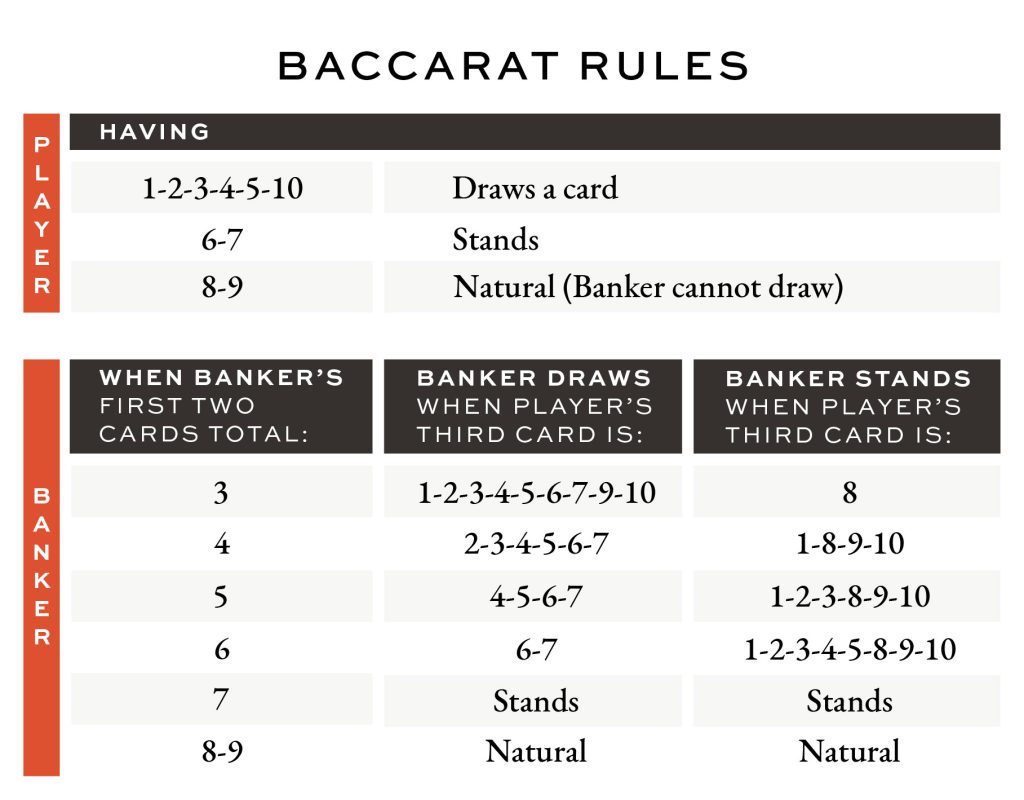
How do you win at baccarat?
Each coup has three possible outcomes: the player’s hand wins, the banker’s hand wins or the two tie.
Player bets are always paid out one to one. If you bet HK$ 1,000 on the player’s hand, you win HK$ 1,000. In standard baccarat, banker bets are paid out with a 5 percent commission – meaning, 5 percent is taken out of your earnings. But non-commission baccarat (NCB) has streamlined the game.
[See more: Mass-market baccarat revenue soars year on year]
In NCB – now by far the most popular form of baccarat in Macao because there’s no “tax” on bettors – banker bets are also paid one to one, unless the banker wins on six points. In that case, you get only 50 percent of the amount you wagered.
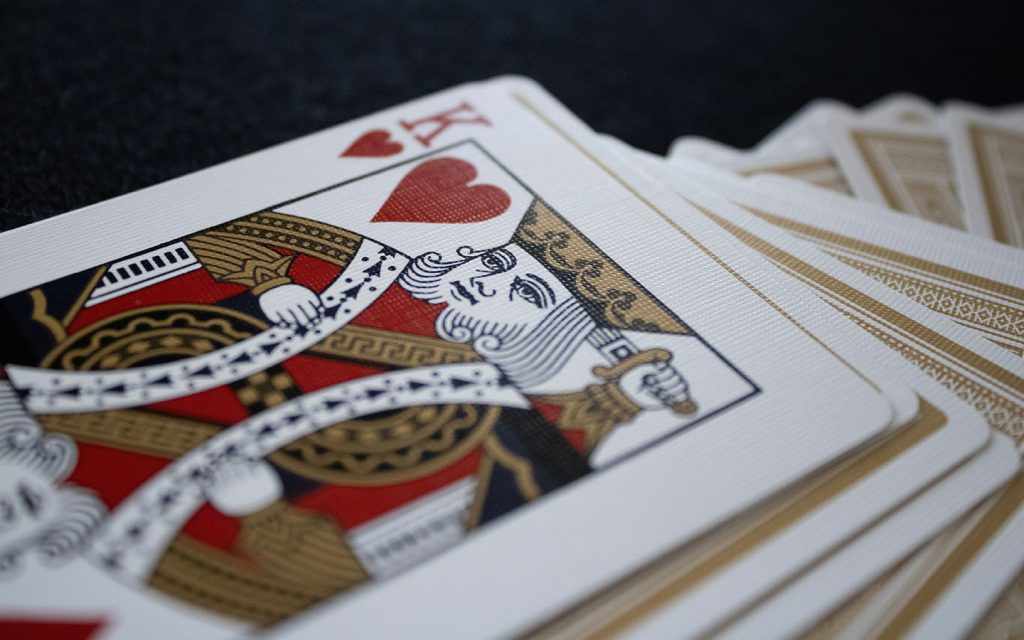
Standard baccarat is usually reserved for VIPs and high-rollers. In fact, one source in the gaming industry, who asked not to be named, says that more than 90 percent of baccarat played on the main floors in Macao casinos is NCB; at VIP tables, “[NCB] makes up maybe 1 percent” of the gameplay.
Where did the game of baccarat originate?
While pop culture fans often link baccarat to fictional spy James Bond, who has a penchant for high-stakes card games, among other vices, the game’s roots run deep.
Some say baccarat spun off from pai gow, the ancient Chinese tile game. Pai gow translates to “make nine,” and nine is the best score in baccarat, hence the connection. The game may have first appeared in Italy more than 700 years ago. That would support its Chinese origins, as Marco Polo returned to Europe from his travels in Asia in the late 13th century.
[See more: RFID tables could give Macao authorities vast amounts of data]
Even so, the game is often associated with France. According to Theodore Whiting, who wrote a paper titled The History of Baccarat for the Center for Gaming Research at the University of Nevada Las Vegas, baccarat may have been brought to France during the reign of King Charles VIII in the late 1400s. (Baccarat is the French version of baccara, which is said to mean “zero” in Italian, although Whiting disputes this.)
Baccarat doesn’t appear in historical annals until the 19th century, however. During the Napoleonic years, in the early 1800s, baccarat became de rigueur among French nobility, Whiting writes. It was an entirely different game then. Called baccarat banque, it was played amongst three people.
A later version called Chemin de Fer (“railway” in French) transformed it into a two-person game. Punto banco – the version you’ll find in Macao – took shape in Cuban casinos in the 1940s. American casino operators then brought it to Las Vegas, and from there the game took the world by storm.
Why is baccarat so popular in Macao?
While baccarat is played everywhere from Monaco to Las Vegas these days, Macao has become the world’s top destination for the card game.
Some speculate this is because it appeals to a perceived Chinese preference for consensus and collective action. Unlike the individualism of poker or blackjack, where punters are dealt their own hands, in baccarat there are just two hands on the table – the player’s hand and the banker’s. “Quite often everyone bets on the same hand,” hoping to combine their luck to win against the casino, according to a source in the gaming industry.
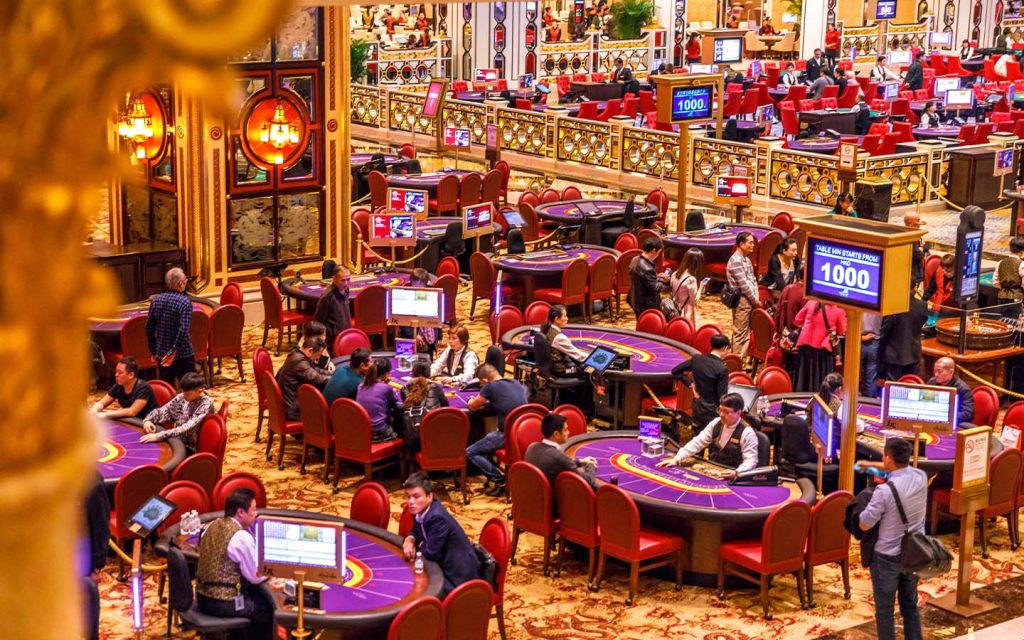
A more straightforward reason, though, comes down to pure maths.
Unlike poker or blackjack, baccarat requires no complex strategising, no need to split, hold or double-down, no gamesmanship, no ability to read other players. You simply place a bet on the banker or player. It’s a game of pure luck, and this simplicity means baccarat has some of the lowest house edges of any game.
[See more: How to eat, drink and entertain yourself for free at Macao’s casinos]
The house enjoys only a 1.06 percent advantage on banker bets. By comparison, European roulette – the version with only a single zero (0), which is played in Macao – has a 2.7 percent house edge. If you play American roulette, which has an extra pocket, the double zero (00), the house has a steeper 5.26 percent advantage.
As long as you avoid tie or other exotic bets, which give the house a whopping 10-16 percent advantage, you stand a better chance of winning against the house playing baccarat than you do roulette.
With baccarat, in other words, the SAR’s canny punters have found a game that gives them a higher chance of success. Don’t expect that to change anytime soon.
Correction appended, 6 June: This story has been amended to reflect the revenue Macao’s casinos generated from baccarat in 2023.
